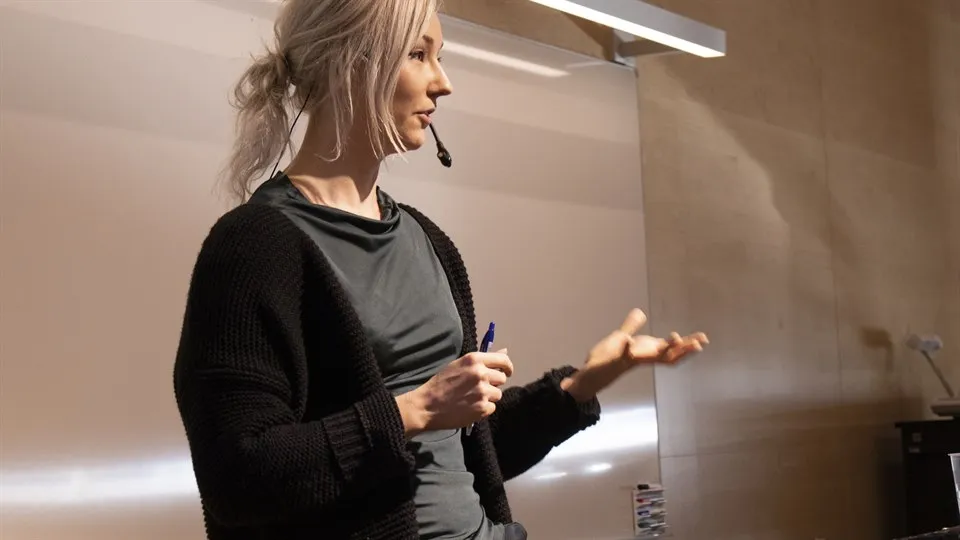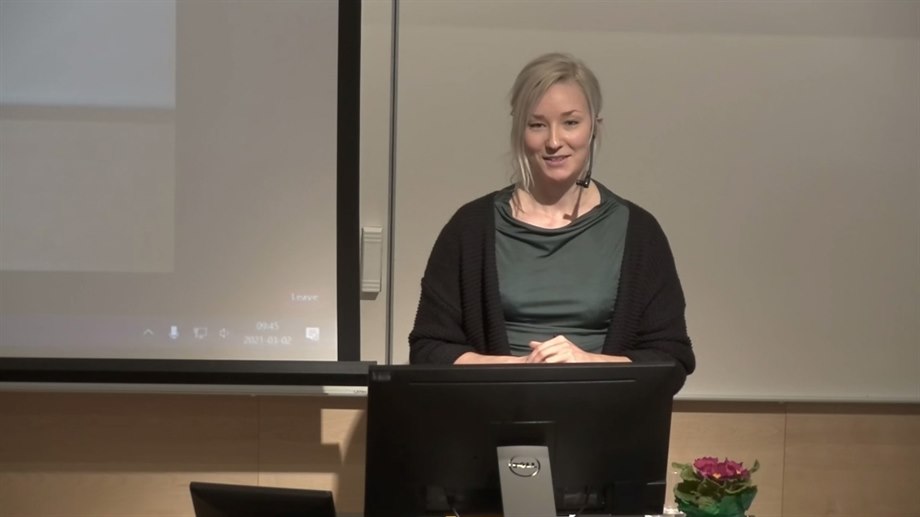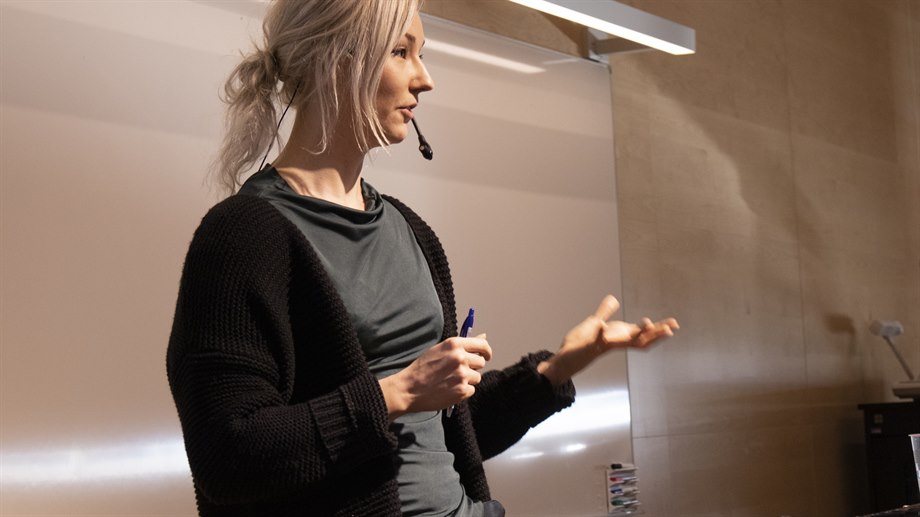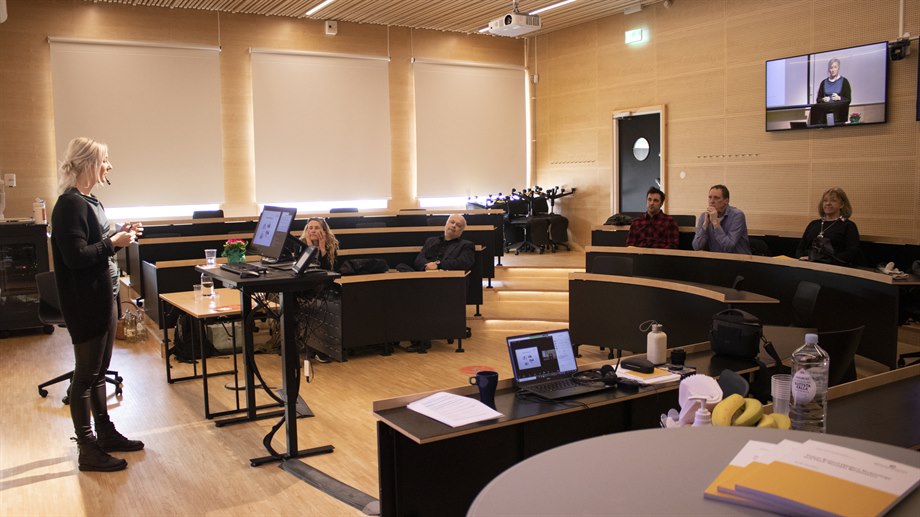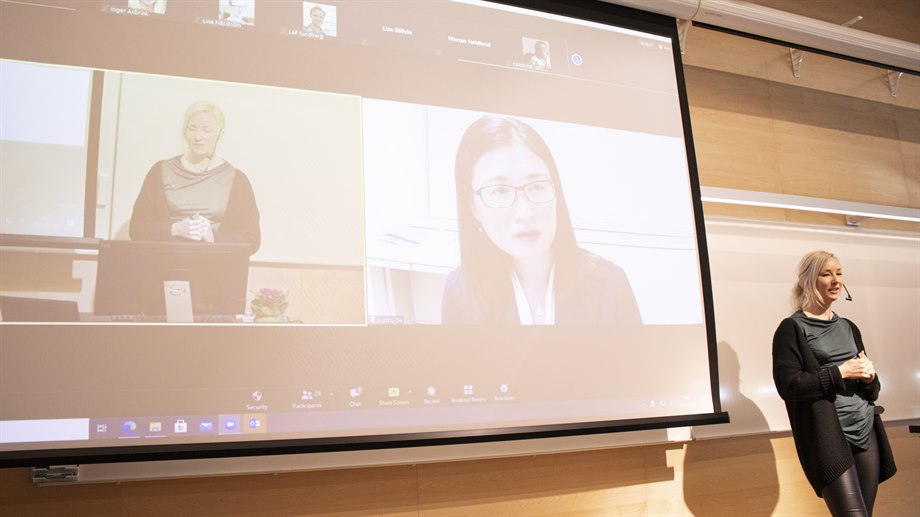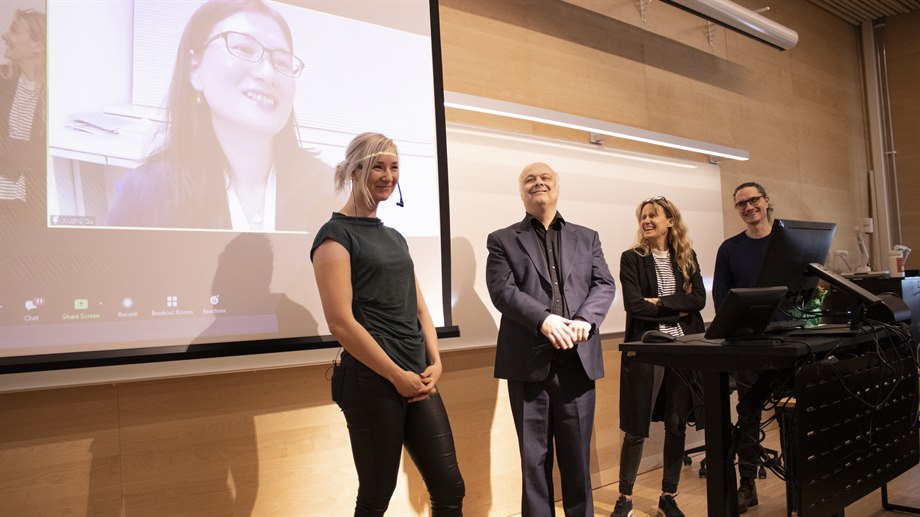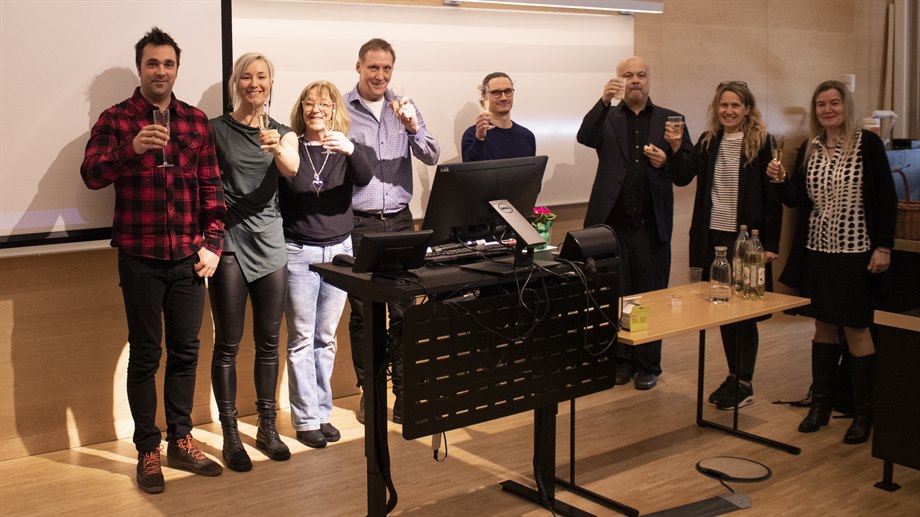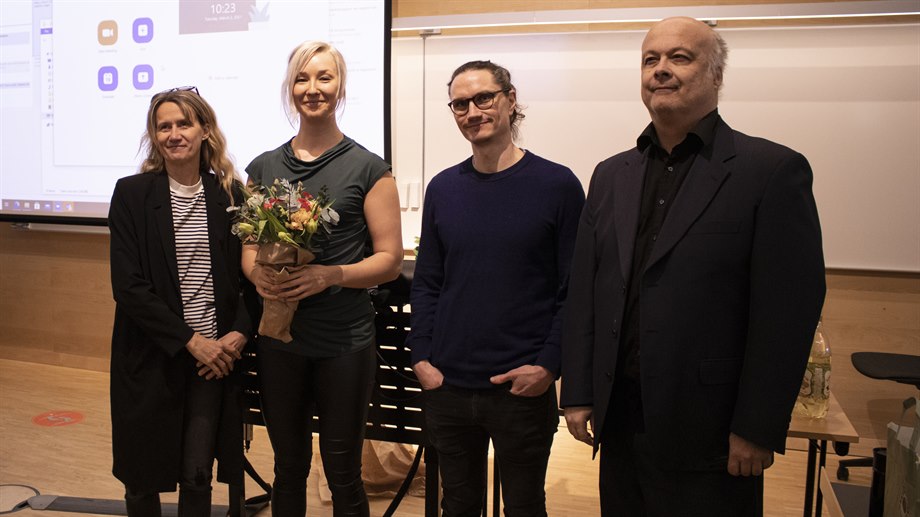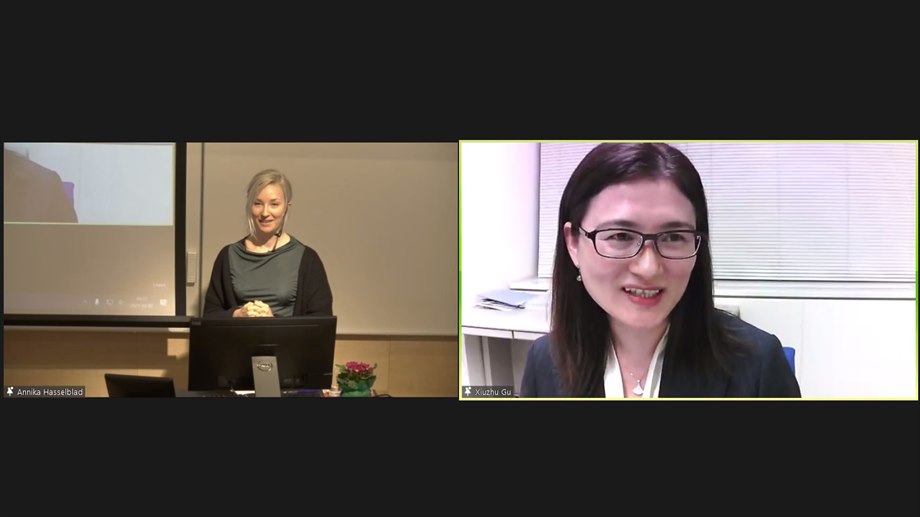av
Licentiatseminarium med Annika Hasselblad
Den 2 mars hölls licentiatseminarium i data- och systemvetenskap med Annika Hasselblad som försvarade sin avhandling: Values Behind Welfare Technology and Their Possible Realization. Hon höll en strålande bra presentation och blev godkänd.
Här är några bilder från dagen och se gärna presentationen igen via filmlänken. Stort grattis Annika!
Huvudhandledare: Leif Olsson
Handledare: Katarina Lindblad-Gidlund, Aron Larsson
Opponent: Xiuzhu GU, Ph.D.
Associate Professor
Department of Industrial Engineering and Economics
W9-55, 2-12-1 Ookayama, Meguro-ku, Tokyo 152-8552, Japan
Sammanfattning
Välfärdsteknologier är till för att stödja äldrevård och hemtjänst, men ses även som alternativ lösning till bristen på vårdpersonal när antalet äldre personer ökar. Dock har välfärdteknologier fått kritik för sina negativa effekter på vårdpersonalens arbetsmiljö, så som stress och prestationskrav på grund av ökad administration och ökade teknikkunskaps krav. Denna licentiatavhandling undersöker detta problem genom att teoretiskt identifiera de bakomliggande värdegrunder som skapare, beslutsfattare och användare utgår ifrån vid kontakt med välfärdteknologier vilket visar en obalans och att tekno-ekonomisk rationalitet ofta får företräde. Utifrån denna kunskap skapas en metod för att utvärdera välfärdsteknologiers effekter och jämna ut denna obalans.
Abstract
In 2018 the Swedish government approved a SEK 350 million grant to increase the municipal implementation and use of welfare technologies in areas such as health care, care, and social service. Welfare technologies have been criticized for their effects on care workers’ work environment, such as increased stress due to time and performance demands. Research also points to how eldercare organizations are becoming victims of technological determinism as a result of the constant pursuit of the latest technologies.
From this critique, this thesis investigates, on a discursive level, the values and assumptions among the actors related to welfare technologies with the purpose of achieving a greater understanding of these negative effects. Using an exploratory research approach, the first part of this thesis investigates the conceptions among actors related to welfare technologies, represented by designers (engineers), decision makers (managers), and users (care workers). This is followed by a value identification study comparing values among actors to definitions of welfare technologies, one create by IT & Telecom industries and another by the Swedish auxiliary institute.
The second part of this thesis takes a more solution-oriented approach by creating an evaluation methodology called Technology Implementation Evaluation Score (TIES), which has as its purpose to, as a combination of traditional positivistic methodologies, include users in the technology evaluation by incorporating qualitative data such as opinions and assessments to a greater extent. The thesis then performs a sensitivity analysis on TIES using extreme values, which shows that the methodology succeeds in making users’ experiences and opinions better heard during evaluation then they have been in the past, thereby reducing the validity problem that contributes to unintended consequences of performance indicators.
Conclusions highlight the fact that the actors involved in the design, implementation, and use of welfare technologies have different perspectives influenced by their knowledge traditions and professional norms, and that these affect the assumptions that are made regarding the users of welfare technologies. Welfare technologies are today designed and implemented by professions led by techno-economic rationality or management values, which provide ill-designed technologies, as the users’ needs are not identified before the technology is implemented. To counteract this TIES provides a way to evaluate the effects of welfare technology and by that include the needs important to provide a successful welfare technology solution for the users which is the care profession.
